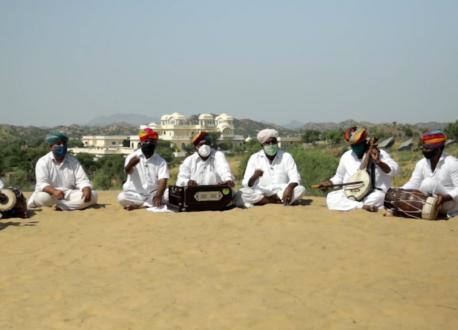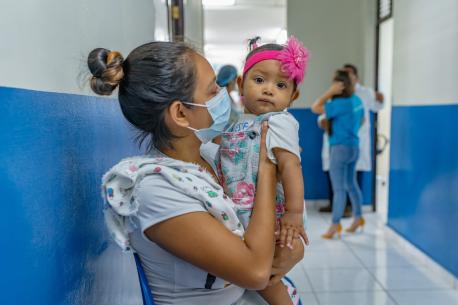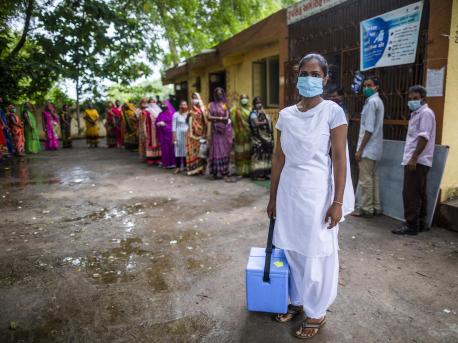
Why We Need Equitable Vaccine Delivery Now
Stopping the spread of the coronavirus means making sure that people everywhere are protected. That's the governing principle behind the COVAX Facility, a groundbreaking vaccine-sharing initiative aimed at guaranteeing that COVID-19 vaccine doses are distributed equitably worldwide.
As a key partner in COVAX, UNICEF is leveraging 75 years of expertise building a global health network for children to coordinate delivery of COVID-19 vaccines around the world, including humanitarian settings and war zones. To date, more than 1 billion doses have been shipped via COVAX to 144 primarily low- and middle-countries.
More than 1 billion COVID-19 vaccine doses have been shipped via COVAX to 144 primarily low- and middle-income countries
Since it began its sweep around the globe in 2020, the novel coronavirus has killed more than 5.5 million people. Without access to vaccines, more people will die needlessly and the virus will spread unchecked, mutating into potentially more dangerous variants like Delta and Omicron, each designated a variant of concern by the World Health Organization (WHO).
Omicron is highly transmissible and, according to preliminary research, may carry a greater risk of reinfection than the Delta variant. The current Omicron surge is the latest reminder that geographic borders cannot contain the spread of a virus. Every country must have equal access to the tools to fight COVID-19, slow transmission and curb its spread — tests, treatments, infection control equipment and of course, lifesaving vaccines.
Vaccine delivery is key to stopping new variants and making a return to normal life possible:
COVAX's mission to vaccinate the world is more essential — and more urgent —than ever. Yet vaccine hoarding and manufacturing delays have kept the access gap between rich and poor nations vast. Nowhere is that inequity more acute than in Africa, where just 8 percent of the population has been fully vaccinated, compared with more than 60 percent in many high-income countries. Vaccination rates vary widely by country: all but one of Africa's 54 countries have begun rolling out COVID-19 vaccines, but only six have reached the WHO global target of fully vaccinating 40 percent of the population by the end of 2021.
A stark imbalance: Africa urgently needs more COVID-19 vaccine doses
"Access to COVID-19 vaccines has been unjust and unfair, with people in Africa bearing the brunt of this inequality. This cannot continue,” said UNICEF Executive Director Henrietta Fore. “UNICEF is a staunch partner of the African continent with a long history of delivering vaccines everywhere they are needed."
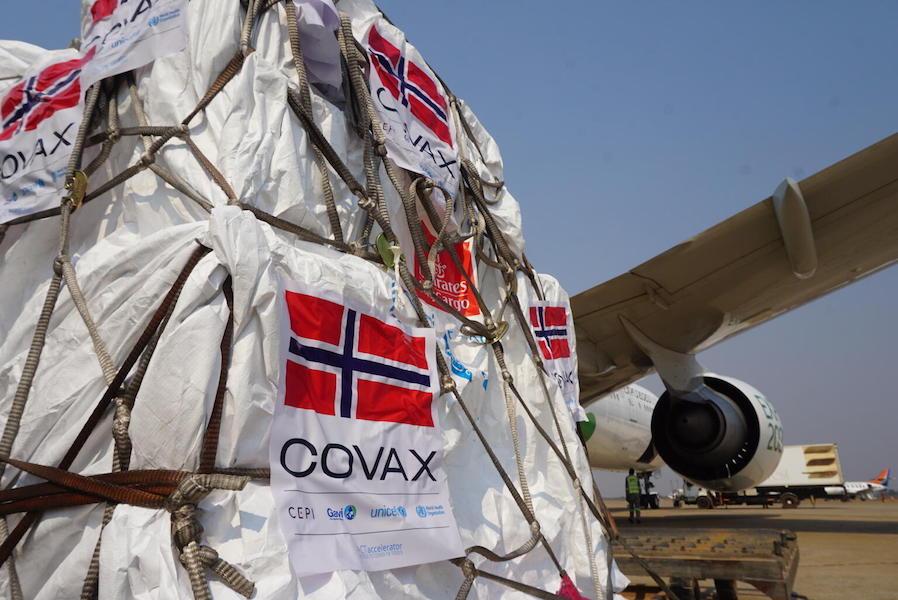
On September 17, 2021, 124,500 AstraZeneca COVID-19 vaccine doses donated by Norway through the COVAX Facility arrived at the airport in Lusaka, Zambia. © UNICEF/UN0522493/James
Mission Unstoppable: COVAX's aim to vaccinate the world is more essential than ever
UNICEF is a key part of COVAX's mission to ensure that low- and middle-income countries have access to COVID-19 vaccines. It's the only organization in the world with the infrastructure, experience and expertise already in place to make it happen. As the world's largest vaccine purchaser, UNICEF currently immunizes 45 percent of the world's children every year. From updating cold chain storage facilities, installing solar-powered refrigerators and providing training on the safe transportation of vaccines to coordinating community outreach programs and fighting misinformation, UNICEF is working on all fronts to help end the pandemic.
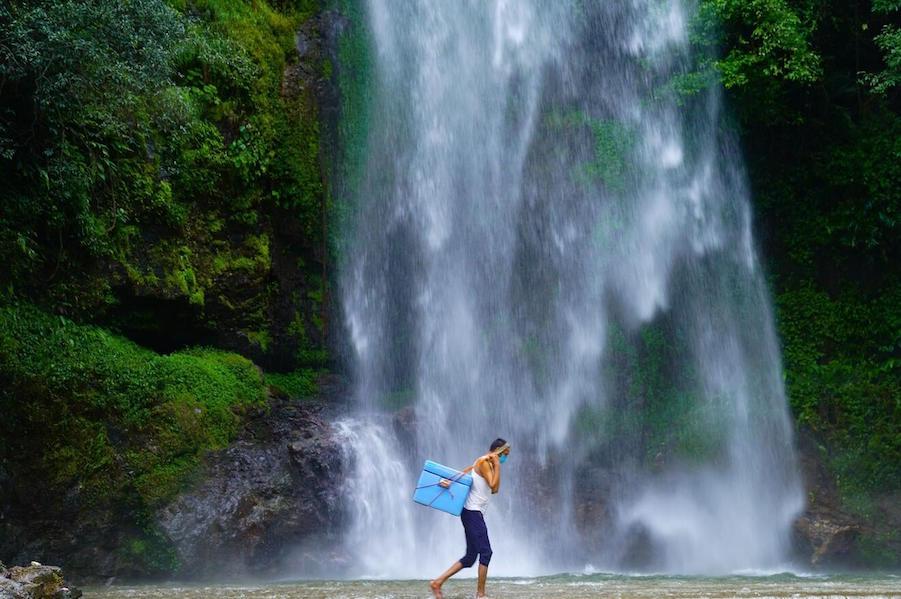
In Nepal's far western Doti district, UNICEF-supported health worker Ravi Chhayajyoti walks to a remote vaccination center carrying COVID-19 vaccines donated to Nepal by the U.S. Government through the COVAX Facility. © UNICEF/UN0501467/Prasad Ngakhusi
At the September 2021 Global COVID-19 Summit, the U.S. Government pledged to donate an additional 500 million doses to be delivered through COVAX in 2022, along with further commitments from UN member states including Japan, Italy, Spain, Sweden and Denmark. Also in September, India announced plans to resume exports of COVID-19 vaccines, prioritizing COVAX and neighboring countries first as supplies rise. India, the world's largest vaccine manufacturer, had to stop exports in April 2021 after the country was hit by a crushing wave of COVID-19 infections.
Equitable access to COVID-19 vaccines is within our grasp. We have proven that the world can rally to do the unthinkable, and we need to do it again. — UNICEF Executive Director Henrietta Fore
“The COVID-19 pandemic has made clear to us all that no one is safe until everyone is safe. But equitable access to COVID-19 vaccines is within our grasp," said Fore. "We have proven that the world can rally to do the unthinkable, and we need to do it again. The sooner we do, the sooner our lives, and the lives of our children, will go back to normal.”
UNICEF is working night and day to ensure that low- and lower-middle-income countries have access to lifesaving COVID-19 vaccines, while continuing to help children around the world survive and thrive. Join the global fight to end the pandemic.
TOP PHOTO: Nilam Bamaniya, a 23-year-old general nursing midwife, holds a vaccine carrier filled with vaccine doses for a COVID-19 vaccination session at a UNICEF-supported public health center in Samlaya, Vadodra, Gujarat, India on July 20, 2021. © UNICEF/UN0500645/ Bhardwaj. Video by Tong Su for UNICEF USA
